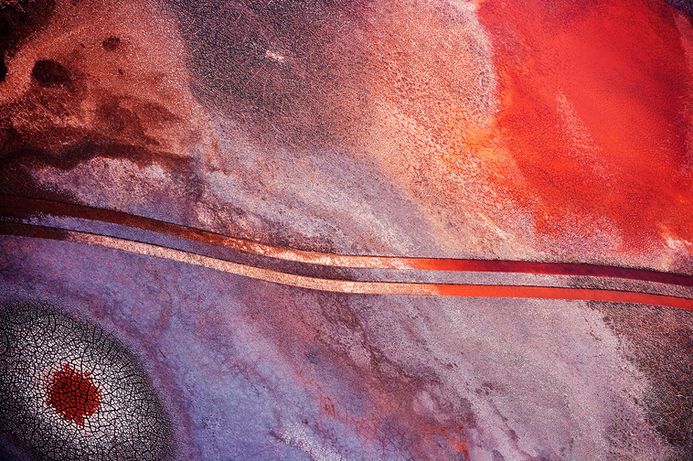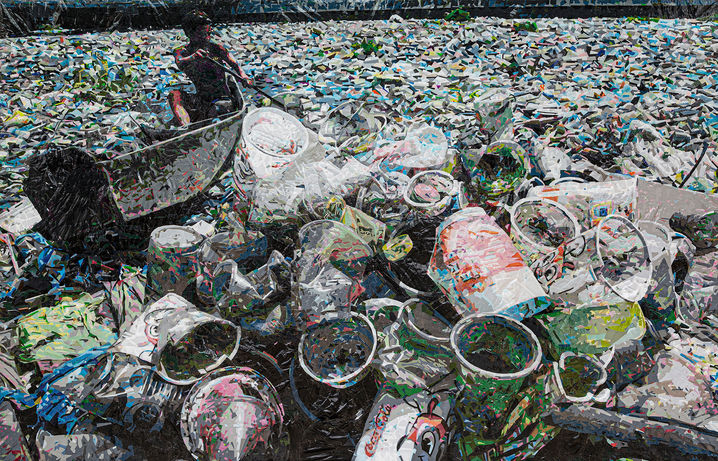
Chris Jordan - Plastic Bottles
Plastic waste is currently one of the most harmful developments on Earth. It is the focus of global discussions regarding treatment of solid waste, mainly due to it being a toxic material that is not bio-degradable, breaking down to tiny particles, “micro plastic” which finds its way into the bodies of fish, birds and other animals who feed on what nature offers them.
WASTELAND
2020
Curator: Raphie Etgar
WASTELAND
2020
Curator: Raphie Etgar
Plastic waste is currently one of the most harmful developments on Earth. It is the focus of global discussions regarding treatment of solid waste, mainly due to it being a toxic material that is not bio-degradable, breaking down to tiny particles, “micro plastic” which finds its way into the bodies of fish, birds and other animals who feed on what nature offers them.
As we look with concern at the recent grave natural phenomena which are threatening our planet’s existence and thus our very own, one might justifiably ask, are we doing enough to prevent them and to what extent are we responsible for them. Is it possible to stop this ever-growing snowball that is bound to lead the world to total annihilation?
Plastic waste is currently one of the most harmful developments on Earth. It is the focus of global discussions regarding treatment of solid waste, mainly due to it being a toxic material that is not bio-degradable, breaking down to tiny particles, “micro plastic” which finds its way into the bodies of fish, birds and other animals who feed on what nature offers them.
The exhibition “Wasteland” examines this reality in light of those concerning phenomena, and attempts to challenge each and every one of us to take responsibility and to join efforts in curbing the waste and plastic pandemic, which is the number one ongoing problem currently facing today’s world.
Christoph Püschner, Germany
Dodi Reifenberg, Germany
Chris Jordan, USA
Hartmut Schwarzbach, Germany
Henry Fair, USA










